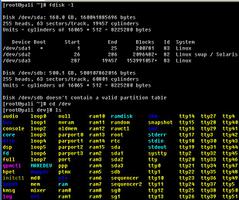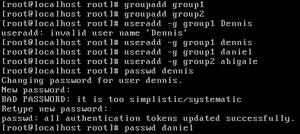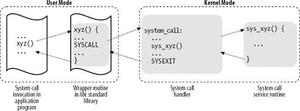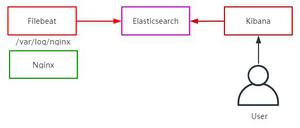Linux终端里的分析系统
我们在调试程序的时候,免不了要去抓一些 log ,然后进行分析。如果 log 量不是很大的话,那很简单,只需简单的复制粘贴就好。但是如果做一些压力测试,产生大量 log ,而且系统内存又比较小(比如嵌入式设备),那要怎么处理呢?
当然,secureCRT 和 mobaXterm 都有将日志保存到本地的功能,使用起来也是很方便。但是有些工具,比如 putty,就没这样的功能了。
这时终端里的记录器—— script 就派上用场了。
使用场景
- 调试会产生大量 log 的应用程序,并且需要保存到本地进行进一步分析;
- 与同事协同工作,自己将工作完成了一半,可以将操作过程记录下来,发给同事,同事可以根据记录接着工作;
- 让人远程协助你,担心对方使坏,同时也可以留下案底,最好将他的操作记录下来
如何使用 script 命令?
默认情况下,直接输入 script 这个命令即可,它会在当前目录自动创建一个 typescript 文件,之后你在此终端的所有操作都会被记录在这个文件里。
记录文件是一个文本文件,可以使用任意的文本工具打开查看。
如果要退出记录,可以在终端里按快捷键 ctrl + D 或直接输入 exit 。在退出 script 前,你会发现,记录文件大小为 0 Kb,当退出后,文件大小会变大。
[alvin@VM_0_16_centos test]$ scriptScript started, file is typescript
[alvin@VM_0_16_centos test]$ echo hello
hello
[alvin@VM_0_16_centos test]$ ls
test1.py test2 test2.cpp test2.py test3 test3.c test.py typescript WeixinBot wxpy wxRobot
[alvin@VM_0_16_centos test]$ exit
exit
Script done, file is typescript
如果我们想要自己起个文件名,或者将文件放在其它位置,那么我们可以直接在 script 后面跟上文件名即可。
[alvin@VM_0_16_centos test]$ script ~/alvin-scriptScript started, file is /home/alvin/alvin-script
[alvin@VM_0_16_centos test]$ ll
total 64
-rw-rw-r-- 1 alvin alvin 21 Nov 10 09:40 test1.py
-rwxrwxr-x 1 alvin alvin 14074 Dec 31 07:35 test2
-rw-rw-r-- 1 alvin alvin 403 Dec 31 07:35 test2.cpp
-rw-rw-r-- 1 alvin alvin 2093 Nov 10 10:50 test2.py
-rwxrwxr-x 1 alvin alvin 8553 Jan 7 20:03 test3
-rw-rw-r-- 1 alvin alvin 78 Jan 7 20:03 test3.c
-rw-rw-r-- 1 alvin alvin 94 Nov 9 23:25 test.py
-rw-rw-r-- 1 alvin alvin 489 Jan 11 12:07 typescript
drwxrwxr-x 6 alvin alvin 4096 Nov 10 11:19 WeixinBot
drwxrwxr-x 6 alvin alvin 4096 Nov 10 11:30 wxpy
drwxrwxr-x 11 alvin alvin 4096 Nov 10 11:34 wxRobot
[alvin@VM_0_16_centos test]$ echo hello
hello
[alvin@VM_0_16_centos test]$ exit
exit
Script done, file is /home/alvin/alvin-script
学会这两个基本操作,可以应付很多场景下需要记录终端的场景。
如何使用 script 与同事协作?
现在有一项工作,需要与同事一起协作,我完成一半,他完成另一半。
首先,我来做我的工作,用 script 记录一下我的工作过程:
[alvin@VM_0_16_centos test]$ script cooperate-jobScript started, file is cooperate-job
[alvin@VM_0_16_centos test]$ echo this is alvin_s job
this is alvin_s job
[alvin@VM_0_16_centos test]$ ls
cooperate-job test1.py test2 test2.cpp test2.py test3 test3.c test.py typescript WeixinBot wxpy wxRobot
[alvin@VM_0_16_centos test]$ exit
exit
Script done, file is cooperate-job
工作完成之后,将记录文件发给同事,他可以使用文本工具打开,就可以知道你的进度了,然后接着你的进度干活。
如果他要接着在你的记录文件里记录他的操作的话,可以加一个 -a 选项,即 append 的缩写。
[alvin@VM_0_16_centos test]$ script -a cooperate-jobScript started, file is cooperate-job
[alvin@VM_0_16_centos test]$ echo this is harry_s job
this is harry_s job
[alvin@VM_0_16_centos test]$ pwd
/home/alvin/test
[alvin@VM_0_16_centos test]$ exit
exit
Script done, file is cooperate-job
请他人远程协助时,如何记录他的操作过程?
让他人登陆到自己的电脑,如果是熟人还好,是陌生人的话心里多少会有些不踏实。为了放心一下,我们还是偷偷记录一下他的所作所为吧。
我们可以将 script 命令添加到 Shell 配置文件中,用户一旦登录进来,script 命令就自动启动,并记录操作者的所有操作过程。
实现这个目的,我们可以修改 .bash_profile 文件。
vim ~/.bash_profile在最后一行,我们将 script 命令添加进去:
/usr/bin/script -qa your_path #补齐自己的路径然后保存,使用 source 或 . 命令使它生效。下次其它人登录到系统时,script 就会自动运行,并将记录文件保存在你所指定的位置。
在这里,-q 选项代表静默记录,对方将不知道你在后台记录。如果不使用这个选项,则他会收到这个提示:
Last login: Fri Jan 11 15:13:37 2019 from 119.33.28.6Script started, file is /home/alvin/test/script-file #提示
[alvin@VM_0_16_centos ~]$
公众号:良许Linux

有收获?希望老铁们来个三连击,给更多的人看到这篇文章
以上是 Linux终端里的分析系统 的全部内容, 来源链接: utcz.com/a/50459.html









